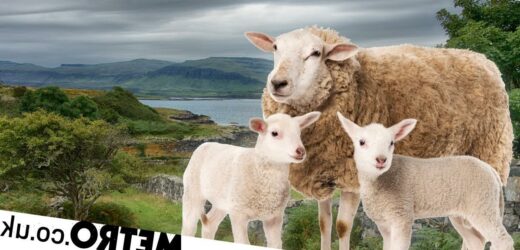Do you know about the stunning island of Ulva?
Up in the Inner Hebrides, it’s a Scottish island that’s currently home to just 11 people.
In 2020, we explored the island and fell a bit in love with it (despite some drama), back when the population was a measly six.
Now, finally, there’s an opportunity to move over.
The isle, which was bought in 2018 by North West Mull Community Woodland Company, is now looking for someone to look after a some sheep and cows.
A large-scale programme of work has been carried out to enclose the hill, create a new park and replace derelict fences.
Stone-built dykes have been restored and a bracken control initiative is under way.
A small flock of sheep was joined by a new herd of heifers two years ago, bought from hill farms on the neighbouring Isle of Mull – and Ulva will see a new stock bull making its arrival in the next few months.
Now NWMCWC has signalled the next phase in returning Ulva Farm into an active livestock unit and is advertising for a resident part-time livestock manager for the next two-and-a-half years, which it is envisaged will lead to a full tenancy.
Be warned, though. As dreamy as moving to a quiet island and hanging out with sheep may sound, the job is no easy task. You’ll need to bring some proper experience to the table.
Director John Addy said: ‘Getting farming moving again on Ulva is vital for the sustainable future of the island’s community and environment, but we are the first to admit that we ourselves are not farmers.
‘We were keen from the start to offer somebody the opportunity of taking on the tenancy on Ulva and becoming a valuable member of the island’s community, but we were also conscious of how difficult it is to build up a farming business from scratch without a sizeable starting capital.
‘A lot of investment and initial work is needed to bring the farm into a condition that supports sustainable, efficient and safe livestock management alongside tourism and other interests on the island.
‘Our strategy since the buyout has therefore been to get the farm up and running as much as possible so that we can hand something over that is workable for a new tenant.
‘Managing an island hill farm in our part of the world requires a specialist skillset so having the offer from an experienced farmer to share their knowledge of the local farming challenges and opportunities is really appreciated.’
The role will be for the duration of around two and a half years, starting on April 1, 2022, and will require an average of 61 hours per month for the first year, then 76 hours a month from 2023 onwards, when the cattle herd will be producing calves.
The salary depends on qualifications and experience, but will be between £732 and £912 a month for the remainder of 2022, increasing to between £976 and £1,216 from 2023.
If you’re worried about where on earth you’d be staying, that’s sorted: a four-bedroom property, the Manse, will be available for £520 a month.
Iain MacKay, of Torloisk Farm on Mull, has offered the successful applicant additional work to help supplement their income, as well as mentoring support. Iain has been a hill livestock farmer all his life, so he really knows his stuff.
‘I am very happy to be able to help the revitalisation of Ulva Farm and, if needed, offer support to the incoming future tenant by sharing my knowledge and experience of hill farming and giving them additional work here at Torloisk,’ said Iain.
‘Neighbouring is an important tradition amongst hill farmers, and I would like to see this type of collaboration continue for the benefit of the next generation.’
NWMCWC has cast a wide net enlisting the support of the Scottish Land Matching Service (SLMS), a Scottish Government-funded initiative, hosted by NFU Scotland and supported by a range of Scottish rural based organisations.
Do you have a story to share?
Get in touch by emailing [email protected].
Source: Read Full Article




